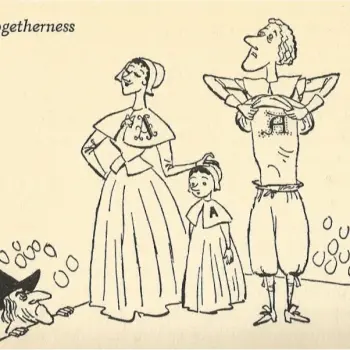Today, her daughter is 2½ years old. Shelby intends to tell her about the reduction someday, to teach her that women have choices, even if they're sometimes difficult. "I am the mother of a very demanding toddler," she says. "I can't imagine this times two, and not ever knowing if I'd have another person here to help me. This is what I can handle. I'm good with this. But that's all."
In response, what can possibly be said? I am left almost wordless, in disbelief that these people—the mothers, the fathers, the doctors, and all the enablers along the way—can achieve sleep or go to work without collapsing in revulsion at what they've done. How can one dialogue with a person who literally leaps with joy after aborting two of her babies, and who then can't resist reminding the reader of the "demanding toddler" she did not kill? What "first things" are shared in common with someone who romanticizes the heart-to-heart she will have with the daughter whose siblings she selectively destroyed?
I don't, at the moment, want to give arguments. Right now, I can only offer what the great bioethicist Leon Kass famously termed the "wisdom of repugnance."
In 1997, writing against the movement to clone humans, Kass noted that among most people there was a kind of arational reason to reject human cloning, something that was more the result of instinct than research:
In crucial cases . . . repugnance is the emotional expression of deep wisdom, beyond reason's power fully to articulate it. Can anyone really give an argument fully adequate to the horror which is father-daughter incest (even with consent), or having sex with animals, or mutilating a corpse, or eating human flesh, or . . . raping or murdering another human being? Would anybody's failure to give full rational justification for his or her revulsion at these practices make that revulsion ethically suspect? Not at all. On the contrary, we are suspicious of those who think that they can rationalize away our horror, say, by trying to explain the enormity of incest with arguments only about the genetic risks of inbreeding.
The medicalized barbarities narrated in the New York Times fall into that category—the realm of repugnance. To try to discourse about them seems, at least now, to diminish their horror. At the moment, I feel exactly as I did ten years ago last Sunday, as if I'm watching two airliners, filled with fuel, fly into the middle of American skyscrapers.
I can't think; I can only gape. I can't argue; I can only shudder.




